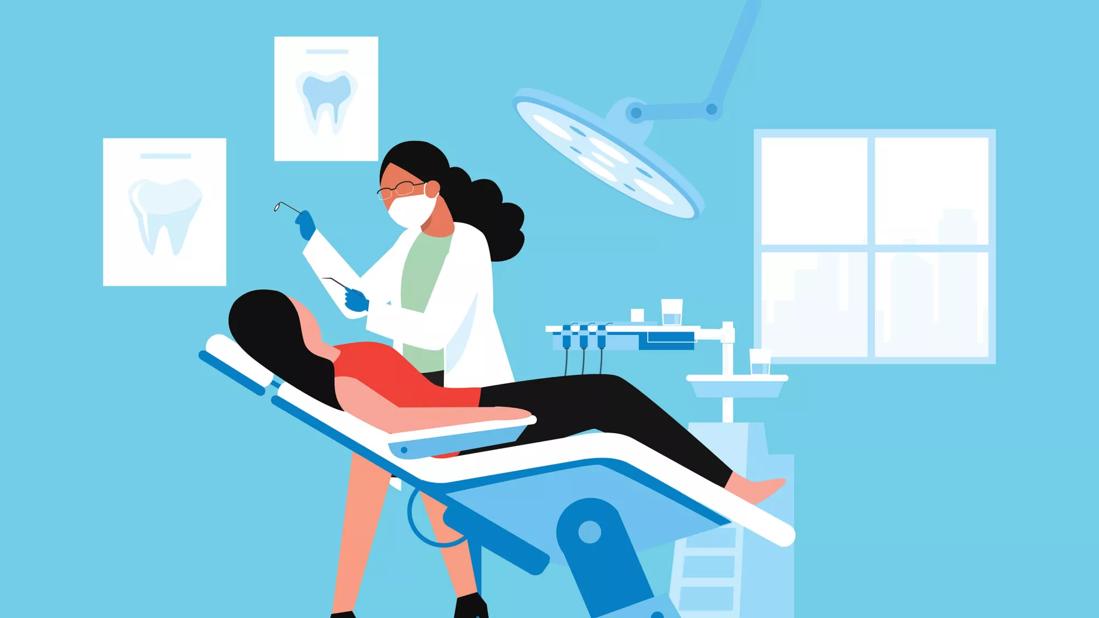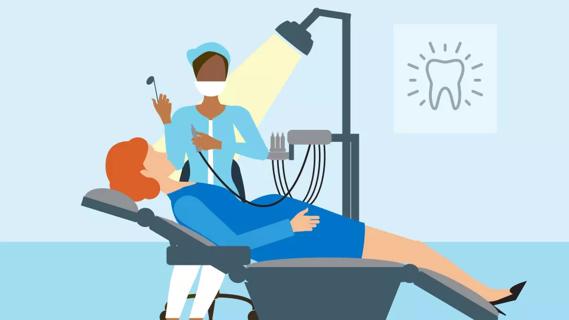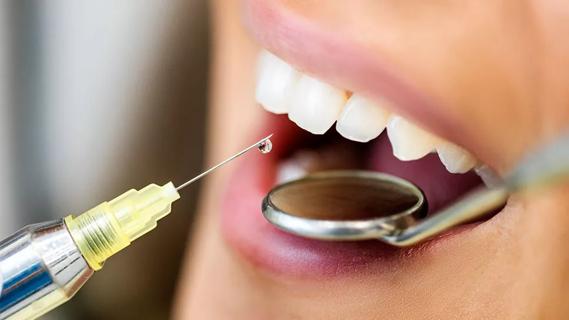While relatively similar, the right one for you depends on your preferences and situation

We come into this world with 32 teeth — and, man, do we give them a workout. Whether we’ve chomped down on a cherry pit, face-planted in a tumble or just gone to bed without brushing one too many times, most of us are likely to lose at least a few of those pearly whites by the time we hit our 60s.
Advertisement
Cleveland Clinic is a non-profit academic medical center. Advertising on our site helps support our mission. We do not endorse non-Cleveland Clinic products or services. Policy
The consequences aren’t great. Missing teeth can interfere with your ability to eat and to speak. Your remaining teeth can drift into the now-empty space, leading to changes in your facial structure and jawline. And then there’s the loss of self-esteem that missing teeth can bring.
It’s good to know that your dentist can offer two well-established ways to replace a missing tooth: a dental implant and a dental bridge.
We spoke with dentist Anne Clemons, DMD, to learn about the differences between the two — and how to choose the procedure that’s best for you.
Dental implants are small threaded posts that replace missing tooth roots. A surgeon places the dental implant into your jaw during oral surgery. Once the implant heals, your dentist places a crown on top.
Dental bridges, on the other hand, fill in for missing teeth without replacing the roots. At its most basic, a bridge consists of crowns that are placed over your natural teeth on each side of the missing tooth, and an artificial tooth that “bridges” the gap between them.
From a day-to-day perspective, says Dr. Clemons, the difference between the two isn’t dramatic. “As far as something that stays in the mouth and provides basic chewing ability, most patients find that they are relatively similar,” she says.
Advertisement
Occasionally, anatomical factors might make your dentist recommend one approach over the other. But in many cases, your dentist is likely to say that either approach would be OK for replacing your missing tooth.
While they’ll help you weigh your options, the decision often comes down to questions of convenience, cost and the length of the replacement process.
Let’s look at some of the pros and cons of each:
When it comes to restoring your smile, dental bridges offer many benefits:
“The main upside to a bridge is that it tends to be a quicker process, start to finish,” clarifies Dr. Clemons. “You don’t have that surgical side of things that you have with an implant, so that can definitely be a plus.”
On the other hand, there are some drawbacks to bridges:
“A bridge can be a pain to clean,” Dr. Clemons notes. “Normally, a person can floss between each tooth. But with a bridge, you have three teeth connected, and no way to get between them. There are special flosses and tools for getting beneath a bridge, but it’s another step in your daily routine, and just a little bit more annoying.”
Dental implants are an increasingly popular choice for replacing a missing tooth. Here are some of the benefits:
“That said,” adds Dr. Clemons, “dental implants still need care and maintenance. But typically, a single tooth implant is going to be a lot easier to keep clean than a bridge.”
But like bridges, dental implants have some drawbacks:
Advertisement
“It’s a longer process in general to get an implant,” Dr. Clemons states, “mostly because the implant needs several months — and maybe more — to heal before it can be connected to the crown. So, that’s certainly something to consider.”
There are a lot of factors in play when deciding between a dental implant and a dental bridge, including convenience, cost and how long it takes to complete the process. When it comes to weighing the pros and cons, your dentist is your best resource, advises Dr. Clemons. “That’s the bottom line, 100%.”
Beyond that, she says it’s a question of individual preferences:
“The answers to these questions are very individual,” Dr. Clemons recognizes, “and your situation may vary. So, it’s just not possible to make a blanket recommendation.”
Fortunately, your dentist can help you sort through these variables. “They really are the best place to start,” she assures.
Advertisement

Sign up for our Health Essentials emails for expert guidance on nutrition, fitness, sleep, skin care and more.
Learn more about our editorial process.
Advertisement

When baby teeth get damaged, these procedures can relieve pain and save space for adult teeth

You should take it easy, focus on managing your pain and take care of your incision

Soft foods like mashed potatoes, applesauce and, yes, ice cream won’t disturb your incision

Benefits typically include bi-annual screenings and lower payments on procedures like fillings and crowns

Dental care is not only safe during pregnancy, but it’s also highly recommended

The numbness and tingling should wear off in about two hours

Communicating, establishing stop signals and even listening to music can help

Even small moments of time outdoors can help reduce stress, boost mood and restore a sense of calm

A correct prescription helps your eyes see clearly — but as natural changes occur, you may need stronger or different eyeglasses

Both are medical emergencies, but they are very distinct events with different causes